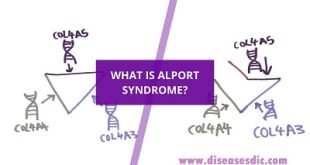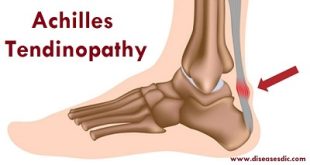Definition
Avoidant personality disorder is characterized by feelings of extreme social inhibition, inadequacy, and sensitivity to negative criticism and rejection. Yet the symptoms involve more than simply being shy or socially awkward. Avoidant personality disorder causes significant problems that affect the ability to interact with others and maintain relationships in day-to-day life. About 1% of the general population has avoidant personality disorder.
Avoidance of social situations
Epidemiology
In the general adult population, the prevalence of avoidant personality disorder is estimated to be 2.1–2.6%. Among adults receiving outpatient psychiatry treatment, the rate has been reported to be 3.6%. A twin study of young adults found an avoidant personality disorder rate of 1.4% in men and 2.5% in women. Avoidant personality disorder is estimated to be equally common in males and females. Avoidant personality disorder is not usually diagnosed in individuals younger than 18 years; however, most patients report an onset in childhood or adolescence, and many report continued social anxiety throughout their lives.
Risk factors
Childhood Experiences – As a child there are different experience that a child may have; gaining trust with other person is an important key in order for him not to be rejected. Either there is feeling of rejection or fears that this child, this goes the time that the child is afraid to deal with somebody else and develops this extreme shyness which predisposes him to withdraw into the social world.
Illness – A man with a severe illness or a chronic illness can be at risk especially if the disease can disturbed one’s body image. This man thinks that people will reject him rather than help him to gain respect. The people will criticize him always that his wellbeing is being disturbed.
Temperament –A person with an extreme irritability or sensitiveness predisposes to avoidant personality disorder by this, he chooses to live on his own way without entering the social because of fear that the people will gain attention to him and avoid them so that he will not get words that may hurt his feelings.
Broken Family – Without the help of your parents or having a single mom or dad you can never be treated the same way. You will always saw them quarreling with each other and that will give you a sense of unhappy feeling.
Peer Pressures – Peers can be good or bad but this time peer pressure can be factor that a man can have this disorder, since peers is in the social world. A man can be frequently get bullied by the peer which then can hurt a man’s feeling to retire to social world.
Causes of Avoidant Personality Disorder
There is no clear cause for avoidant personality disorder; some theories state that it is a function of how one is brought up, but biological factors are likely as well. Individuals with a disfiguring condition or illness may overlap with those with this disorder. This disorder is fairly uncommon and there is little information about occurrence by gender or about family pattern.
Symptoms
Avoidant personality disorder typically manifests itself by early adulthood and includes a majority of the following symptoms:
- Avoids occupational activities that involve significant interpersonal contact, because of fears of criticism, disapproval, or rejection
- Is unwilling to get involved with people unless certain of being liked
- Shows restraint within intimate relationships because of the fear of being shamed or ridiculed
- Is preoccupied with being criticized or rejected in social situations
- Is inhibited in new interpersonal situations because of feelings of inadequacy
- Regards themself as socially inept, personally unappealing, or inferior to others
- Is unusually reluctant to take personal risks or to engage in any new activities because they may prove embarrassing
Complications
- Social phobia
- Substance abuse
- Major depression
- Social and occupational withdrawal
- Schizophrenia
Diagnosis of Avoidant Personality Disorder
- Personality disorders such as avoidant personality disorder are typically diagnosed by a trained mental health professional, such as a psychologist or psychiatrist. Family physicians and general practitioners are generally not trained or well-equipped to make this type of psychological diagnosis. So while you can initially consult a family physician about this problem, they should refer you to a mental health professional for diagnosis and treatment. There is no laboratory, blood or genetic tests that are used to diagnose avoidant personality disorder.
- Many people with avoidant personality disorder don’t seek out treatment. People with personality disorders, in general, do not often seek out treatment until the disorder starts to significantly interfere or otherwise impact a person’s life. This most often happens when a person’s coping resources are stretched too thin to deal with stress or other life events.
- A diagnosis for avoidant personality disorder is made by a mental health professional comparing your symptoms and life history with those listed here. They will make a determination whether your symptoms meet the criteria necessary for a personality disorder diagnosis.
Treatment and medications
Psychotherapy is the most effective treatment for APD. Your therapist may use psychodynamic psychotherapy or cognitive behavioral therapy. The goal of therapy is to help you identify your unconscious beliefs about yourself and how others see you. It also aims to help you function better socially and at work.
Psychodynamic psychotherapy
Psychodynamic therapy is a form of talk therapy. It helps you become aware of your unconscious thoughts. It can help you understand how past experiences influence your current behavior. This allows you to examine and resolve past emotional pains and conflicts. Then you can move forward with a healthier outlook about yourself and how others see you. Psychodynamic psychotherapy produces lasting results with benefits that continue after treatment.
Cognitive behavioral therapy
Cognitive behavioral therapy (CBT) is another form of talk therapy. In CBT, a therapist helps you recognize and replace unhealthy beliefs and thought processes. Your therapist will encourage you to examine and test your thoughts and beliefs to see if they have a factual basis. They’ll also help you develop alternative, healthier thoughts.
Talk therapy
Talk therapy is a therapeutic approach wherein the clinician leads the client in conversation about his or her experiences, attitudes and behaviors. It can be incorporated into any therapy approach. By maintaining a conversational dialogue about his or her fears, shame, and insecurities, a client learns to be less sensitive to criticisms and rejection. Therapists use talk therapy in both individual and group therapy settings.
Group therapy
Most therapists would recommend waiting until the client has made some progress toward recovery before putting him or her in a group therapy environment. But for the client who is ready, group therapy can give the avoidant personality a positive social experience and help them accept feedback in a safe and controlled setting.
Medication
Anxiolytics and sedatives are the drug of choice for the patient with Avoidant Personality Disorder. Although some research shows that the patient is longing for alcohol in order for them to forget what the behavior that they have is, but alcohol shows many complications that influence them to become aggressive type.
The most important is to have an appointment with a psychiatrist to prescribe the effective treatments for the disorder. Psychiatrist and clinicians says that the combination and psychotherapy will help to correct behaviors.
Here are some medications listed that works on Avoidant Personality Disorder.
- Klonopin is an effective anti-anxiety drug that is used in combination with other medications for the treatment of personality disorder. Klonopin is a benzodiazepines.
- Beta-blockers are also known to be effective in dealing with avoidant personality disorder.
- Monoamine Oxidase Inhibitors (MAO) like Parnate, Marplan, and Nardil.
- Selective Serotonin Reuptake Inhibitor (SSRI)
- Clonazepam
- Sertraline Hydrochloride
- Fluoxetine (Prozac)
- Paroxetine (Paxil)
Prevention of Avoidant Personality Disorder
Since avoidant personality disorder usually originates in the patient’s family of origin, the only known preventive measure is a nurturing, emotionally stimulating and expressive family environment.
 Diseases Treatments Dictionary This is complete solution to read all diseases treatments Which covers Prevention, Causes, Symptoms, Medical Terms, Drugs, Prescription, Natural Remedies with cures and Treatments. Most of the common diseases were listed in names, split with categories.
Diseases Treatments Dictionary This is complete solution to read all diseases treatments Which covers Prevention, Causes, Symptoms, Medical Terms, Drugs, Prescription, Natural Remedies with cures and Treatments. Most of the common diseases were listed in names, split with categories.








this is what I need I have been suffering this for many years now
true i have some of these signs and an shy what do i do please
Please consult a doctor to get treatment for APD.